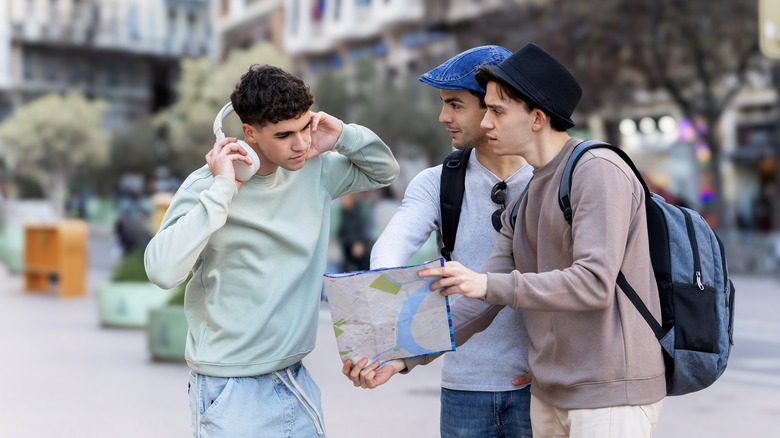Have you ever studied a foreign language before going abroad? Excited to interact with a local, you use a well-rehearsed expression with as crisp an accent as you can muster. The person then responds in a blizzard of syllables with no recognizable pause anywhere. It all whizzed right past your ears and sounded like one long word. Many of us have been there, but as native English speakers, we can easily forget that’s how foreigners hear us using our language.
The travel sage Rick Steves says remembering that perspective is an important piece of communicating while traveling. He says, “Your European friend is doing you a favor by speaking your language. The least we can do is make our English simple and clear.” Thinking about how to speak English before going abroad might seem counterintuitive, but that’s exactly what Steves recommends. His simple tip for overcoming language barriers is to modify your own language to speak in what he dubbed “Learning English.”
Being in a non-English-speaking country, staring at road signs, and trying to decipher menus naturally brings obstacles. It’s always wise to do some research before getting on a plane. Knowing a few essential words and phrases in the local language can go a long way. Much of communication is non-verbal, so being aware of these popular European hand gestures could also be helpful. But without fairly high-level fluency in a foreign language, situations will inevitably arise where it’s difficult to properly convey the message. That’s where “Learning English” comes in, and Rick Steves’ advice to “speak slowly, clearly, and with carefully chosen words.”
Using Learning English to overcome language barriers
English is an international language with an estimated 1.5 billion people who speak it around the world. The 360 million native speakers are quite lucky that we can navigate airports and tourist hubs with relative ease. Although, anyone who’s traveled abroad has undoubtedly battled communication issues. Simple things like ordering coffee, asking for the price of a bus, or finding a bathroom can become fun challenges or confusing disasters.
When so many people around the globe know at least a bit of English, it’s easy for native English speakers to forget that learning a second language is much different than how one innately knows their mother tongue. The tendency when communicating abroad can be to increase the volume of speech. We want to add more words and context when not understood, just as we would back home. Rick Steves recommends doing the opposite, saying, “Be a Neanderthal. Strip your message down to its most basic element.” Single, well-annunciated words serve as entire sentences.
Standing in a breathtaking plaza and wanting to capture more of the scene than a selfie will allow? Rick Steves says that politely getting a local’s attention and saying, “Photo?” can work better than something like, “Do you mind taking a picture of us?” The same goes for asking directions. Using “train station?” or “taxi?” and pointing simplifies the message and lowers the probability that a foreigner will get lost in all the additional words of “Excuse me, do you know where I could find…?” Simplicity and word choice are the keys to proper travel communication.




